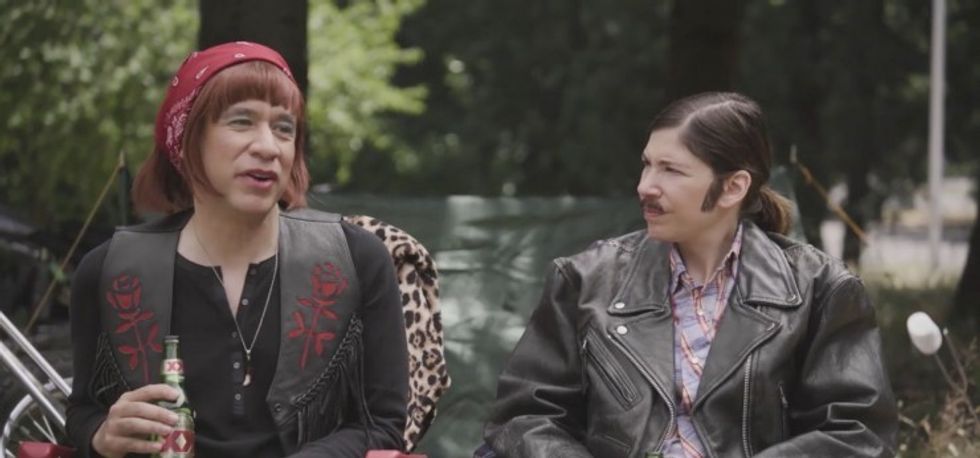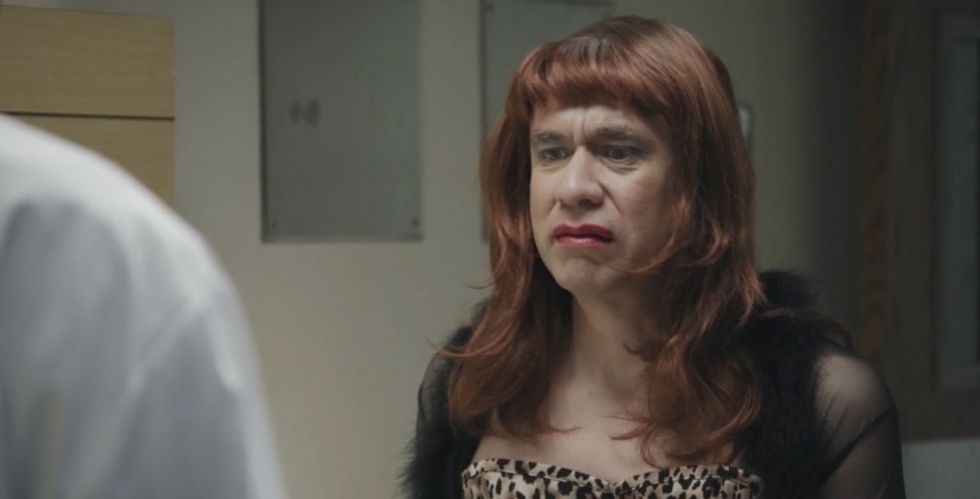'Portlandia' Editor Reveals How to Make Sketch Comedy Funny
If you're skilled at editing comedy, you're skilled at editing.

This past August at EditFest LA, editor Heather Capps participated in a panel talk called "From the Cutting Room to the Red Carpet," where all of the panelists' unanimous advice to emerging editors was to take any opportunity to get into comedy – if you can edit comedy, you can transition into any other genre. What makes comedy editing such a special skill? We talked with award-winning editor Heather Capps about the power of post, making jokes land, and editing IFC's sketch comedy series Portlandia.
Capps is a twice ACE Eddie Award-nominated editor living in Los Angeles, California. Recognized in the "Best Edited Comedy Series for Commercial Television" category for IFC's Portlandia, she is also known for her work on projects such as Comedy Central's Nathan for You, Tim & Eric's I Love David on Adult Swim, and Hulu's Shrill.
Capps is also a member of the editing team who received the "U.S. Documentary Editing Award" at Sundance 2016 for the film Nuts!, which toured the film festival circuit worldwide.
No Film School: How did you become interested in editing and how did you get started in the industry? What advice do you have for editors or assistant editors trying to break into the comedy television world?
Heather Capps: When I first came to LA, I was initially more focused on writing and landed a job on a major TV show at the time. But I eventually found being in a major studio environment kind of stifling creatively. I felt like a total idiot not being happy with the work, but I left and started over in post at Abso Lutely. Abso footage can be super fun and unique, editorially, since it has the potential to be incredibly fluid in post. So working in that environment, I got a lot of experience in editing, writing, VFX, sound, etc, and I was given a chance to become an editor much earlier than if I had worked in a major studio. After some time editing on a variety of projects, and a Sundance-winning feature, it led me to editing full-time.
For advice, while it’s important to remember that all this is technically a job, it’s a total blast to go to work and play with footage all day. Starting out in post, you don’t always get to work on the projects you are most interested in. But it’s important to find jobs that can help you find your voice and develop your own aesthetic. In a creative position, when you put a lot of yourself into your work, it’s hard not to mentally take your work home with you. Which can be a real downer if you’re working on a project you dislike. Editing isn’t just fixing bad footage and mistakes, you can really have fun with it and take great things to the next level. Post seriously has a lot of power. That being said, don’t go dark on your work and give up easy. Stay positive! There are a lot of tools at your disposal, both technically and narratively. By staying open and flexible, you really can save almost anything, and make something you’re super proud of in the end.
NFS: What was the post-production process like on Portlandia?
HC: [It] was really unique, and different from any other show I’ve worked on. We really had such an amazing team. It honestly felt like summer camp, where we tried to make each other laugh as much as we could in our edits. We also had some amazing directors that had a lot of faith in us, and let us pull major swings in the post room. A standard project will usually ask for a to-the-script assembly, while Portlandia just wanted to see the funniest option right off the bat. No matter how off-book or wild it was. Editors really don’t have that option on most shows.
NFS: You've worked with amazing actors and performances, but we know that the editor's hand plays a big role in comedy and making jokes land. What secrets can you tell us about comedy editing? Are there any editing "tricks" or techniques that you've found always help make moments funnier?
HC: Not all jokes need to be glaring, some can be "slow burns" or just lurk in the background. Not all jokes have to be scripted either, there are a lot of chances in post to pitch brand new ideas. But ideally, you take advantage of every opportunity to enhance what you have. And there are a ton of opportunities to do that in post. Especially if you have the ability to play with score, sound design, VFX (both obvious and sneaky, like hidden split screens, morphs, or replacing people/objects in shots). Having more skills allows you to contribute so much more to comedy in post, which is why some of my favorite scenes to edit have been ones that were more open-ended and made me get my hands a little dirty. When you have an expanded skill set it also allows you to have creative conversations between departments and it gives you more creative influence across the board.
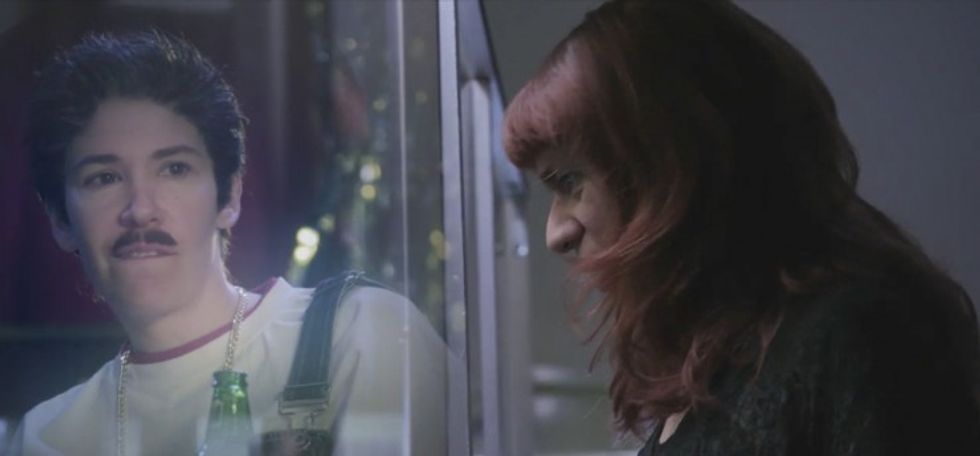
NFS: You mentioned at your panel talk at EditFest this past August that you were often working with a lot of improvisation on Portlandia – how does having so many possibilities affect your work?
HC: When you’re working with footage that’s primarily improvised, it forces you to be open minded in figuring out what an episode or segment can even be. Even with a script, you really don’t know what kind of footage is going to come through your door. It’s awesome to come into a show with ideas, but it’s important not to commit before you see what you have. You find out really quickly that there are 10,000 ways to tell a story. The amount of freedom post has on shows like these is pretty different than scripted, since you really need to put yourself in kind of a writing role. That’s not to say that scripted shows are paint-by-number, you can swap a couple lines or switch scene placement and it’ll change the context of an entire episode. Having so many possibilities can seem overwhelming at times, but there’s usually one or two options that really just get stuck in your brain. It’s all in avoiding tunnel vision and always being open to finding the bigger picture.
"On shows like these, [as the editor] you really need to put yourself in kind of a writing role"
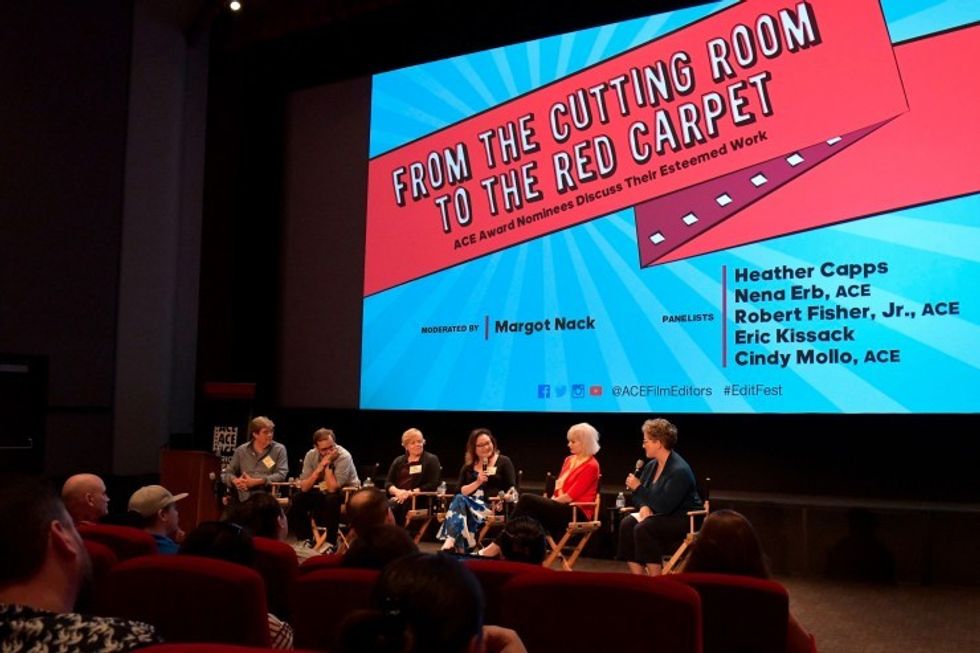
In the end, editing comedy doesn’t mean you’re not editing drama. In fact, most of the time you need to edit drama in order to make some comedic parts more effective or relatable. In most cases, you can’t have one without the other. Even in drama, having aspects of comedy peppered in can help things feel more lifelike and less robotic or staged. No single genre creates a one trick pony, and people truly miss out on fresh perspectives by thinking that way.
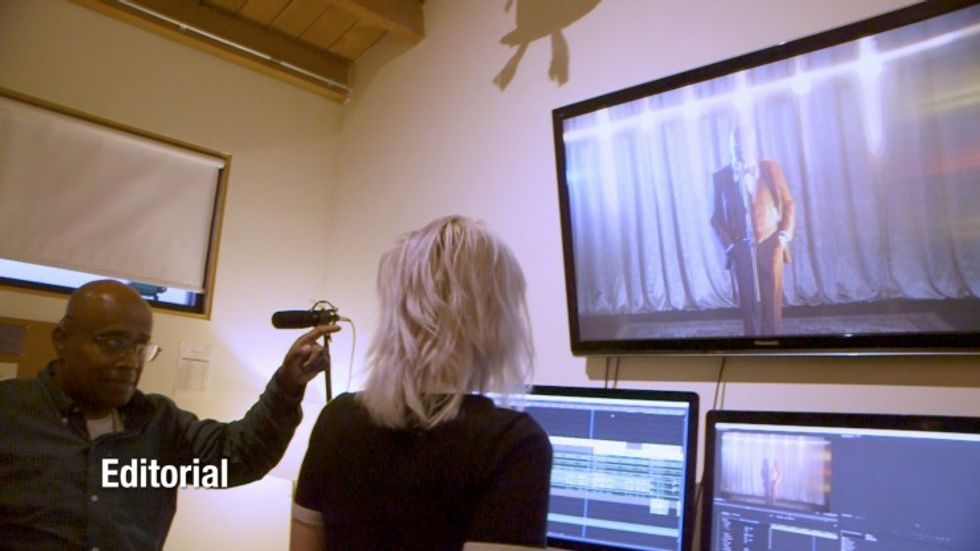
HC: When I first started, I definitely noticed that there were times I was the only woman in the building. But since then, I’ve been lucky enough to work with many amazing women in post. Though, I recognize that may be a bigger testament to the projects I’ve worked on rather than the field as a whole. Still, it’s something I really appreciate. It’s more subversive now, but there are still shows out there, especially in comedy, that are more hesitant to hire women because they feel like it’ll disrupt some highly-sensitive creative process. And honestly, screw those caustic environments and the people who foster them. Instead of beating your head against the wall, trying to convince someone of your capabilities, I’ve found it’s much more efficient and healthy to just find people that lift you up and appreciate you. Overall, I’ve come across infinitely more people who find no issue with hiring women than those who do. And those are the people you want to work with. You’ll have way more fun and generate a bigger creative impact on the project.
NFS: What's coming up next for you? And what kind of productions do you hope to work on in the future?
HC: Right now, I’m working on the second season of Shrill for Hulu, which should be out sometime in January [2020]. For productions I hope to work on in the future, I’d like to get a head start and publicly throw my name in for The Matrix 4. Would really appreciate any help I can get on landing that one, to be honest
What are some of your favorite comedy moments in television and what makes them so funny? Let us know in the comments!
